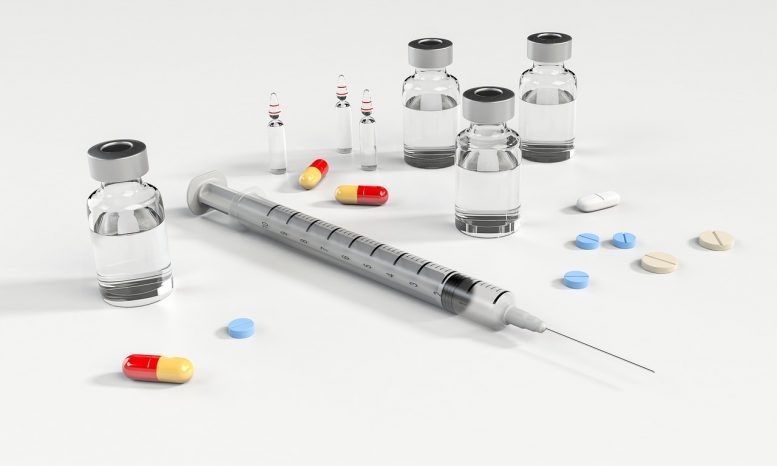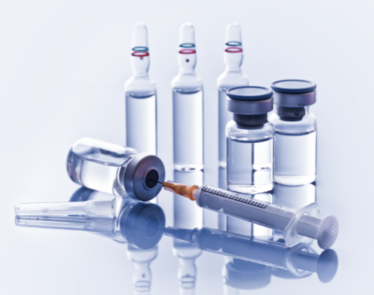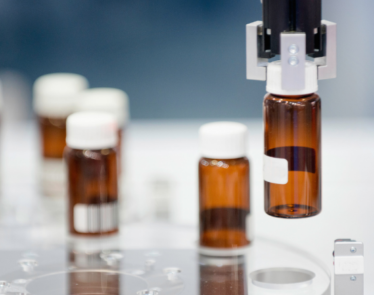
The global pharmaceutical market has been growing at a rapid rate in recent years and is expected to reach $1.57 trillion USD by 2023, signaling a major opportunity for investors to cash in on pharmaceutical stocks.
Some of the factors behind the market’s growth include the aging population, lifestyle diseases, FDA approvals, and healthcare legislation.
Leading the way will be pharmaceutical stocks that are focused on cancer treatments, which has been by far the largest area of focus in the pharmaceutical world. In fact, oncology therapy was worth $107 billion in sales in 2017 and is expected to grow at a 12.2% compound annual growth rate (CAGR) to $233 billion by 2024. The other top therapy areas include anti-diabetics, anti-rheumatics, vaccines, and anti-virals.
Small-Cap Pharmaceutical Stocks to Watch
The pharmaceutical market is currently dominated by massive drug companies like Johnson & Johnson (NYSE:JNJ), which brought in a whopping $81.58 billion in revenue in 2018, and Pfizer (NYSE:PFE), which reported $53.6 billion in revenue for 2018.
However, there are a number of small-cap pharmaceutical stocks that are developing revolutionary new treatments that have massive potential. One of these is Geron Corporation (NASDAQ:GERN), which has developed a first-in-class telomerase inhibitor, imetelstat, in hematologic myeloid malignancies. Telomerase is an enzyme that enables cancer cells to multiply, and Geron’s imetelstat is designed to stop telomerase activity and impeding malignant cell proliferation.
Curis Inc. (NASDAQ:CRIS) is another company that is focused on developing drugs that treat cancers. Curis conducts a significant amount of research and works with other drugs makers in testing and developing drugs. The company has one drug that has already been FDA approved and was commercialized by Roche (OTCQX:RHHBF) and Genentech.
>> RVLV Stock Jumps 89% on First Day of Trading on NYSE: IPO Success
Then there is Novavax (NASDAQ:NVAX), a vaccine developer that is focused on the prevention of diseases from the Zika virus to the seasonal flu. The company is getting close to bringing its NanoFlu vaccine to market after announcing positive results for Phase II of its clinical trials in older adults in January.
Pharmaceutical ETFs
If you aren’t sure which pharmaceutical stock to invest in, there are plenty of pharmaceutical exchange-traded funds (ETFs) you may want to consider to gain exposure to this growing market. Pharma ETFs offer investors a chance to trade a set of assets as opposed to individual companies, offering less market volatility and lower expenses and fees.
Pharmaceutical ETFs also give investors a broad view of what these pharma companies have to offer and where they stand in the market.
Here are some of the pharmaceutical ETFs to consider:
1. First Trust NASDAQ Pharmaceuticals ETF (FTXH)
The First Trust NASDAQ Pharmaceutical ETF tracks highly liquid pharmaceutical stocks that are weighted according to different factors. While many funds perform a basic liquidity screen as part of their index construction and rebalancing, FTXH goes beyond the basic screen and uses liquidity selection. FTXH chooses 30 of the most liquid pharmaceutical stocks in the US, based on average daily traded volume over three months.
Those securities are then ranked and weighed according to volatility, value, and growth as FTXH seeks to replicate the holdings and weightings of the Nasdaq US Smart Pharmaceuticals Index in order to generate performance results 95% correlated to that index.
2. Invesco Dynamic Pharmaceuticals ETF (PJP)
Invesco Dynamic Pharmaceuticals ETF is a fund that is based on the Dynamic Pharmaceutical Intellidex℠ Index, which is designed to provide capital appreciation by thoroughly evaluating companies based on price momentum, quality, earnings momentum, management action, and value.
The Invesco Dynamic Pharmaceuticals ETF includes 30 US pharmaceutical stocks that are principally engaged in the research, development, manufacturing, distribution, or sale of pharmaceuticals and drugs of all kinds.
3. VanEck Vectors Pharmaceutical ETF (PPH)
VanEck Vectors Pharmaceutical ETF is an ETF that seeks to replicate the price and yield performance of the MVIS® US Listed Pharmaceutical 25 Index (MVPPHTR), an index that tracks the overall performance of companies that are involved in pharmaceuticals, including pharmaceutical research and development as well the production, marketing, and sales of pharmaceuticals.
PPH seeks to track the most liquid companies in the pharmaceutical industry, based on market cap and trading volume, favoring industry leaders. The portfolio of companies may include both domestic and US-listed foreign pharmaceutical companies, allowing for an enhanced representation of the industry.
>> BKS Stock Soars 60% in 2 Days on Acquisition News
4. SPDR S&P Pharmaceuticals ETF (XPH)
The SPDR S&P Pharmaceuticals ETF is a fund that seeks to replicate the performance of an index derived from the pharmaceuticals segment of a US total market composite index. It offers equal-weighted exposure to approximately 30 US pharmaceutical companies, stretching across all market-cap sizes. The fund’s weighting scheme allows it to be much less concentrated than the industry itself, which is dominated by massive pharma companies. XPH also introduces heavy tilt to mid- and small-cap companies, making it a volatile fund relative to the industry.
SPDR S&P Pharmaceuticals ETF is an efficient fund with a low fee and tight tracking, offering investors a solid way to invest in a less-concentrated version of the pharmaceutical market.
5. iShares US Pharmaceuticals ETF (IHE)
The iShares US Pharmaceuticals ETF seeks to track the investment results of a broad-based, cap-weighted index composed of US pharmaceuticals stocks and holds roughly 40 of the largest pharmaceutical companies in the US. IHE offers exposure to US companies that manufacture prescription or over-the-counter drugs or vaccines and targeted access to domestic pharmaceutical stocks.
According to ETF.com, the iShares US Pharmaceuticals ETF sees inconsistent trading volume, and retail investors should be wary of considerable spreads, though underlying liquidity is better for large investors.
Featured Image: Pixabay












